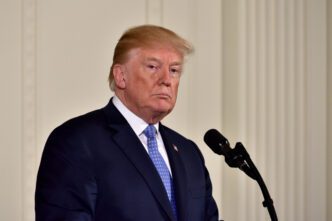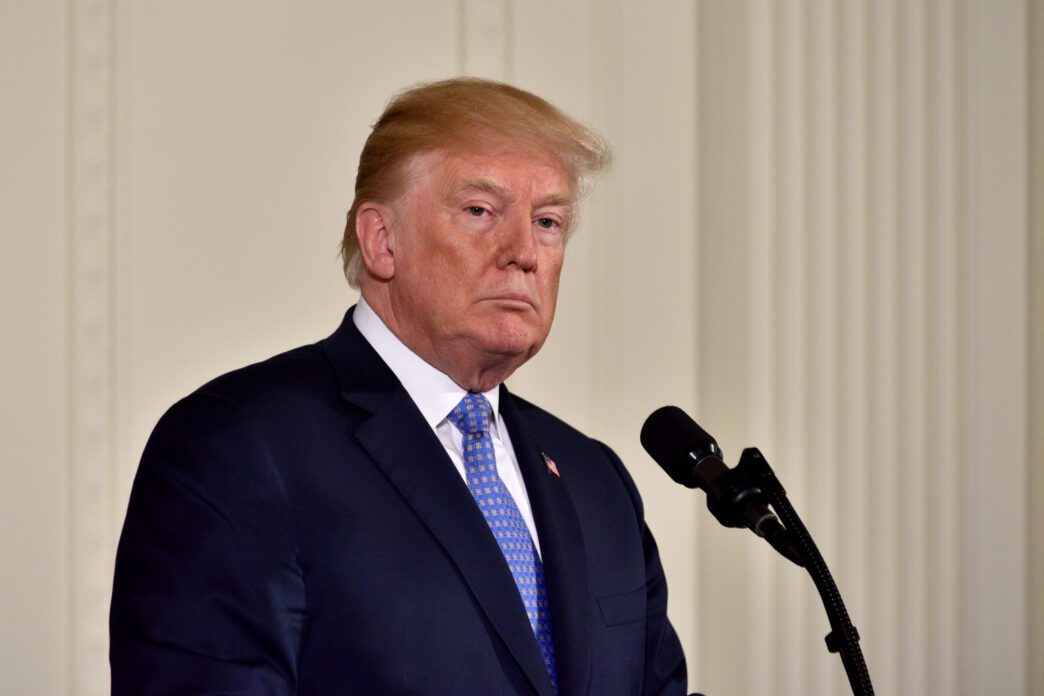Executive Summary
The Story So Far
Why This Matters
Who Thinks What?
The Supreme Court is set to hear arguments Wednesday in a significant economic case challenging President Donald Trump’s sweeping global tariffs, with a coalition of small businesses leading the legal battle while major U.S. corporations have remained conspicuously silent. The case will determine the legality of duties imposed by Trump on imports from China, Mexico, and Canada, which he has made a centerpiece of his economic agenda.
The litigation has been advanced by a group of smaller enterprises, including an Illinois-based family toymaker and a New York wine importer, who argue that the tariffs are an “asphyxiating tax” driving intolerable costs and uncertainty. Victor Owen Schwartz, founder of V.O.S. Selections, expressed surprise that larger entities did not step forward to challenge the policies. Rick Woldenberg, CEO of Learning Resources, framed the case as a challenge to an “unlawful tax” rather than a political attack on Trump.
The Trump administration, through US Solicitor General D. John Sauer, asserts that the 1970s-era International Emergency Economic Powers Act (IEEPA) clearly permits the president to regulate importation, even if it doesn’t explicitly mention tariffs. The administration warns that a ruling against its position would have “catastrophic consequences” for the economy, potentially unwinding trade arrangements worth trillions of dollars. Trump has leveraged these IEEPA tariffs into negotiated framework deals with major trading partners.
Corporate Silence on Tariffs
The notable absence of public input from major U.S. companies in a case with vast economic implications is unusual, according to experts and individuals involved in the litigation. This silence is largely attributed to a perceived fear of retribution from the White House, given the federal government’s immense leverage and power to affect businesses. Gregory Shaffer, a professor at Georgetown University Law Center, noted that companies appear more cautious with this administration.
Cassie Abel, CEO of Wild Rye, a women’s outdoor apparel company and an amicus brief participant, suggested that larger companies might be less immediately affected by tariffs, able to switch supply chains, absorb costs, or secure exemptions. She also pointed to past instances where retailers faced public criticism from Trump for threatening tariff-related price increases, signaling potential “pain” for those who speak out. Some larger companies are believed to push back on tariffs in quieter, non-public ways.
Historically, major companies frequently file friend-of-court briefs in Supreme Court cases to offer their perspectives, as seen in past appeals concerning affirmative action, DACA, and credit card industry regulations. However, in this tariff case, several major companies that have previously submitted such briefs, including Apple, Levi Strauss, Walmart, and Home Depot, did not respond to requests for comment regarding their silence.
Broader Opposition and Funding
Despite the silence from major corporations, the briefs submitted to the Supreme Court overwhelmingly oppose Trump’s emergency tariffs. Opponents include former national security officials, a watchmaking industry group, nearly three dozen former federal judges, and the Chamber of Commerce. The Liberty Justice Center, a group involved in the case, stated its litigation is funded by “individuals and groups that support our mission” but does not disclose donors without permission.
Outlook
This high-stakes Supreme Court battle highlights the unique dynamics of challenging executive trade policy under President Trump, where small businesses have taken the lead in a fight that larger corporations have largely avoided. The outcome could reshape the president’s authority to impose tariffs and have significant ramifications for the U.S. economy and its trade relationships.








